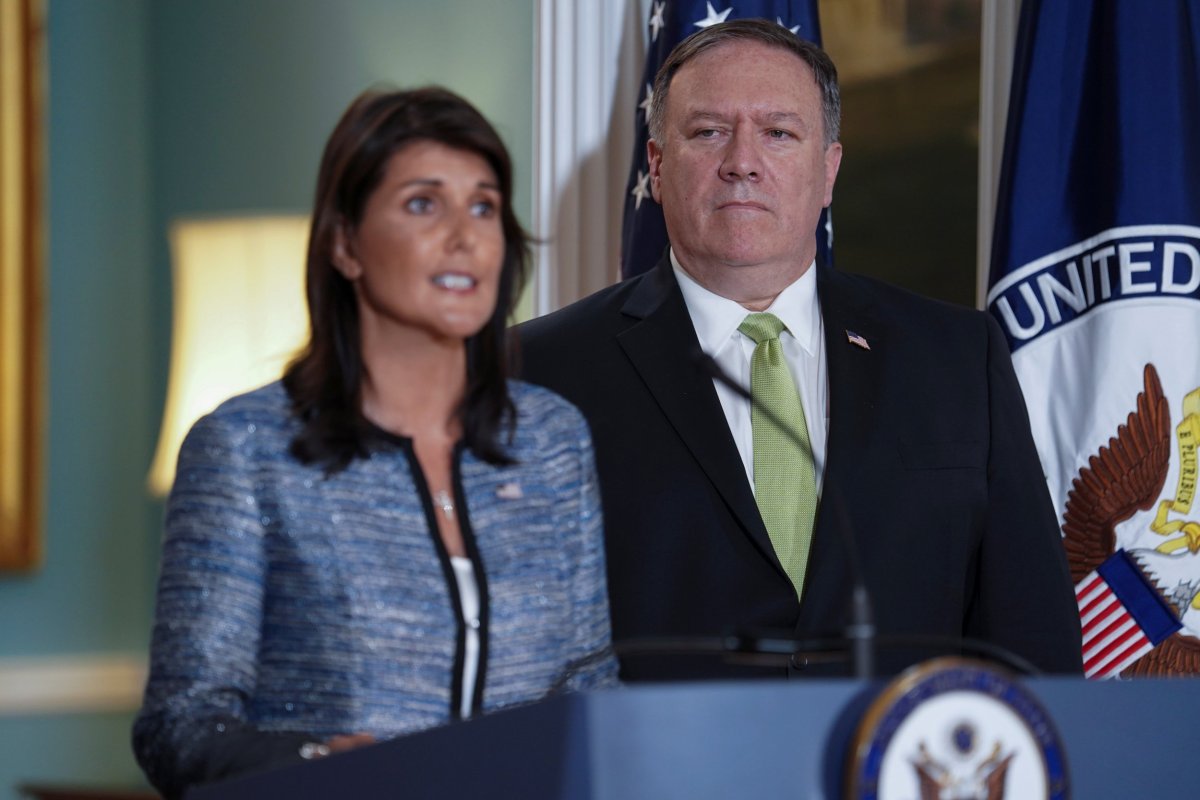The decision by the Trump Administration to leave the United Nations Human Rights Council (some would gladly put the last three words in derisive inverted commas) has been inevitable for some time.
In the past, the George W. Bush administration boycotted its predecessor, the U.N. Commission on Human Rights, for similar reasons. It was hopelessly biased, obsessed with Israel, and highly tolerant towards a full range of human rights abusers (Bush spoke specifically, at the time, of Bashir's Sudan sitting at the UNHRC high table.)
U.S. pressures led to some reform efforts, and by 2006 the Commission became a Council; the hope that this would lead to real changes was behind the Obama Administration's decision to join in 2009. Specific issues related to Israel, such as the fact that it was the only country discussed for a full chapter (number 7), were supposed to be brought to an end. They were not, but the Trump Administration, somewhat contrary to its reputation for arbitrary action, did not immediately withdraw. Ambassador Nikki Haley served notice on the UNHRC that this might happen, but it is only now, 17 months after taking office, that the action was taken.
It is fair to assume that the internal dynamics in the State Department, which under Mike Pompeo is now awakening from a long professional slumber, have something to do with the timing. From an Israeli perspective, this became all the more necessary after the UNHRC chose to focus not upon Hamas' recent human rights abuses—the use of their citizens as human shields while committing acts of war, such as planned large scale raids across the border and the ongoing launching of fire bombs by kites—but rather on Israel's inevitable response.
This was hardly new. In 2010, the UNHRC established a panel of inquiry into the Mavi Marmara incident, in which the Israel Defense Forces (IDF) prevented a pro-Hamas flotilla from reaching Gaza. The mandate of the inquiry was so skewed that their findings were diametrically different from those of the panel appointed by the Secretary General and led by former New Zealand Premier Geoffrey Palmer, who in his academic capacity, is a renowned expert on the Law of the Sea. While criticizing operational aspects, Palmer concluded that Israel acted within its rights under the law; the UNHRC commission drew the opposite conclusions.
Much the same happened during the debates which followed Hamas-initiated conflicts and rocket barrages in 2009 and again in 2014. In the case of the former, the action to condemn Israel was driven by the Goldstone Report (the U.N. Fact Finding Mission on the Gaza Conflict) that Richard Goldstone himself later came to regret. In 2014, the initial choice of the the UNCHR for the investigation fell upon a person accused of anti-Israeli views and Palestinian connections, who later had to withdraw his nomination.

Even this did not convince the Obama team, which took a firm line in support of multilateral institutions and found reasons to stay, citing minor changes in the UNHRC's conduct towards Israel. Even the fact that the Council is now led by a Jordanian Prince was described as positive, given Israeli-Jordanian relations—ignoring the familiar dynamics that cause the Arab and Muslim block at the U.N. to close ranks regardless of the merit of the case.
Not so the present team, which patiently set the parameters for change, well in advance, and finally came to the conclusion that they have not been met. Unfortunately, the unambiguous moral message of the act of withdrawal—and of Haley's pithy statement, in which she spoke of the UNHRC as a "cesspool of hatred"—was immediately marred, to some extent, by poor timing.
The decision was taken in uncomfortable proximity to the sharp criticism hurled at the Trump Administration for the treatment of illegal immigrant families at the Mexican border. Amidst the inevitable moral outrage, and the highly polarized political uproar, it was easy to construe the withdrawal as an act of pique. Moreover, it has already been woven into a larger narrative about Trump's destructive instincts against the entire post-1945 international system, painstakingly built by his predecessors since Truman.
This is a pity. The current political discourse in the U.S. has become poisoned, in both directions, by personal hatreds. Trump's actions on trade and immigration, and his unique "diplomatic style" are legitimate targets for criticism. But this should not induce fair-minded people to criticize this particular decision. It should have been taken long ago.
Dr. Eran Lerman is former deputy director of Israel's National Security Council and Vice President of the Jerusalem Institute for Stratigic Studies.
The views expressed in this article are the author's own.
Uncommon Knowledge
Newsweek is committed to challenging conventional wisdom and finding connections in the search for common ground.
Newsweek is committed to challenging conventional wisdom and finding connections in the search for common ground.
About the writer
To read how Newsweek uses AI as a newsroom tool, Click here.








